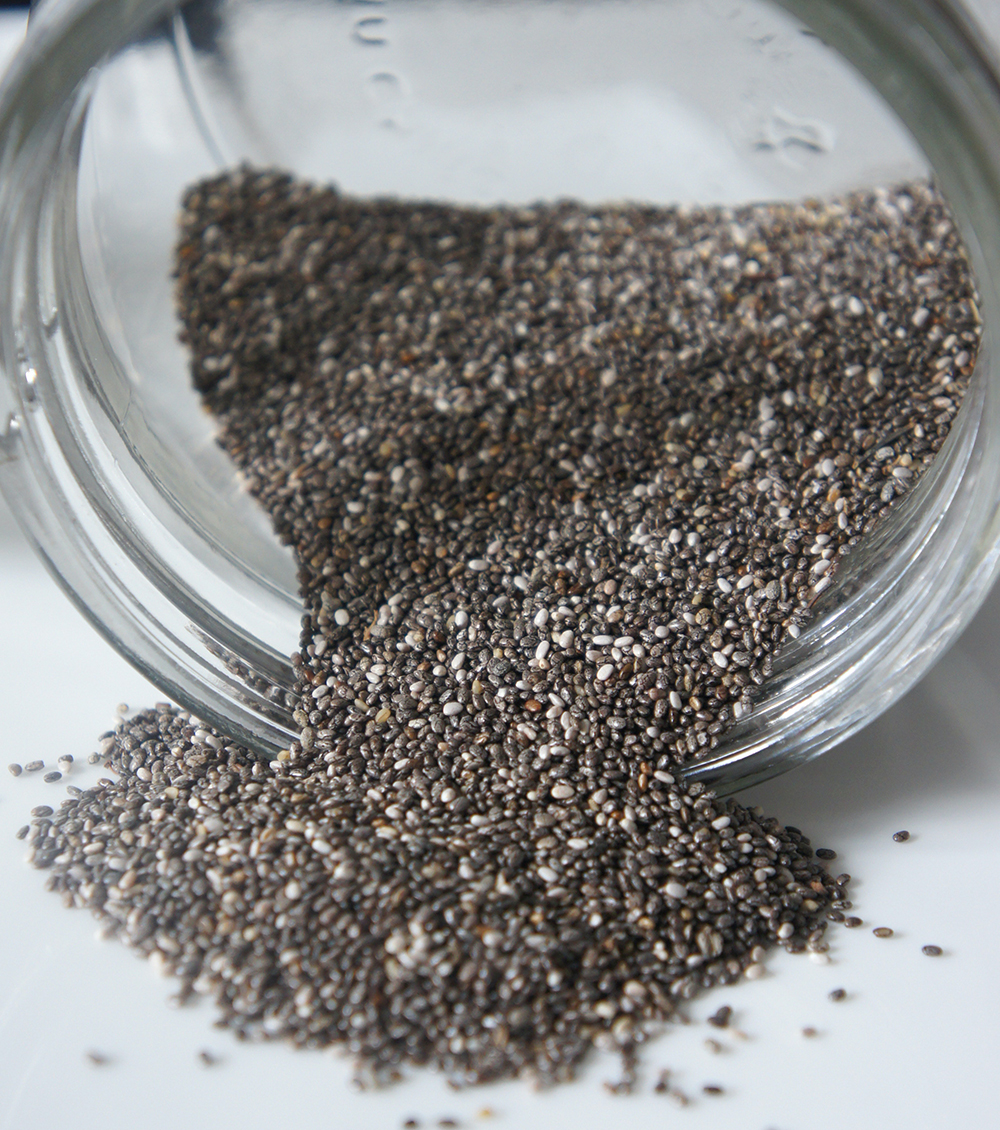How to Add Chia to a Heart-Healthy Diet
Here’s what you need to know about adding this nutritional powerhouse to your family’s diet

You should be able to find chia-based foods throughout your supermarket including in pastas, oil and non-dairy milk alternatives. Why chia? It is a great source of protein and dietary fiber. But chia is most famous for its abundant ALA omega-3 content.
ALA is the only omega-3 that is considered biologically an ‘essential’ fatty acid because the body can’t make it on its own. You must get it from your diet. The National Institutes of Health recommends that adults consume between 1.1 and 1.6 grams of omega-3 ALA daily. That can be challenging, especially if someone in your family is not a fish eater. Because it’s a plant, chia makes it easy to get enough ALA without having to deal with a fishy aftertaste.
How to choose the best chia products for your family
As food manufacturers jump on the chia bandwagon, you’ll want to make sure you’re getting high-quality chia products made from premium seeds. Chia products should be produced sustainably, so they are as good for the planet as they are for your family.
It’s also smart to check the ingredient labels, especially if you crave plant-based goodness but you’re sensitive to some ingredients. Some non-dairy milk alternatives, for example, may have gluten-containing additives.
Seeds of Wellness (SOW) is making your plant-based meal planning simpler
Sustainably produced SOW chia products are natural, non-GMO and made from premium chia seeds traceable back to the farm on which they were grown. SOW also uses special processing to ensure that each of its products retains all of chia’s nutritional goodness.
Look for these SOW products coming soon to your supermarket:
Creamy SOW Chia Beverage (vegan, vegetarian and keto friendly): This is the only chia option that contains just chia, water and a pinch of salt. Each 8 oz. serving contains 740 mg of ALA, 2 grams of fiber, which is more than all other dairy milk alternatives, plus a whopping 2.4 g of protein. It’s also an excellent source of calcium (346 mg/serving), and delivers vitamins A, D and E. All for just 21 calories per cup. Shake well! Separation is natural.
More to know:
- Plant-based SOW Chia Beverage is shelf stable, so you might find it on store shelves as well as chilled in the dairy case.
- Available in Original Unsweetened, Original Sweetened and Vanilla Unsweetened versions.
SOW Chia Pastas (vegan, vegetarian and kosher friendly): Made from just three simple ingredients – chia, corn and rice flour – SOW Chia Pastas are naturally gluten-free and low carb. Each eight-ounce package gives you 830 mg of ALA, 16 g of fiber (more than half the daily recommended amount), and 20 grams of plant-based protein.
More to know:
- Plant-based SOW Chia Pasta is available as spaghetti, fusilli, penne and elbows.
- With the same familiar consistency of refined, enriched pastas, there’s a variety of SOW Chia Pasta for all of your family’s favorite recipes.
SOW Chia Oil (vegan, vegetarian and keto friendly): One teaspoon of SOW Chia Oil contains 3 grams of omega-3 ALA. The ALA in chia oil also increases the omega 3 fatty acids EPA and DHA in pregnant women and in their breast milk. Plus there’s evidence that chia oil supports the immune system, is anti-inflammatory, promotes cardiovascular health, is neuroprotective, and promotes healthy skin, hair and nails.
More to know:
- Chia oil can be used for sautéing and it gives a slightly nutty taste when used as a finishing oil. Try drizzling SOW Chia Oil over salads, vegetables and rice or use it in dressings, vinaigrettes, sauces, dips and spreads.
- While many healthy oils are sensitive to oxidation, SOW Chia Oil has a longer-than-average shelf life thanks to its proprietary production process. It can remain stable for up to two years when stored unopened in a cool, dry and dark place. Once opened, store the oil in a refrigerator to increase its shelf life.



